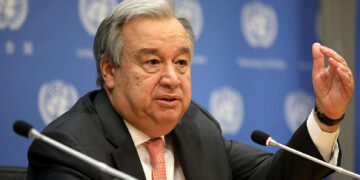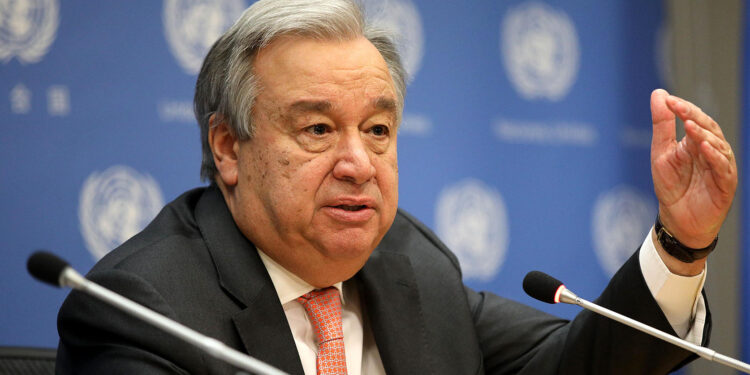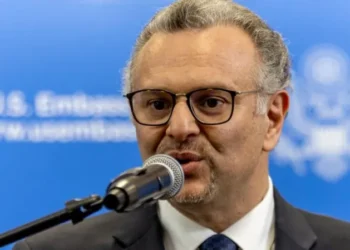By John Ikani
A United Nations (UN) publication has detailed a secret government programme tagged, ‘Suhlu’, designed to pull commanders of terrorists groups, including Boko Haram and the Islamic State for West African Province (ISWAP) out of the forests, rehabilitate them and provide them a means of livelihood, THISDAY reports.
The report by a United Nations’ publication, The New Humanitarian, said a clandestine Nigerian government programme was reaching out to senior jihadist fighters in the bush to encourage them to abandon their goal of building a caliphate by force of arms, and to defect.
It said the report was based on six months of reporting and research.
Government officials, former jihadists, analysts, journalists, displaced people, and civil society workers were interviewed, but nearly all asked to have their names withheld or altered due to security concerns.
Security officials believe sulhu could open the door to a peace deal, ending a stalemated conflict that is now in its twelfth year. But critics argue such a deal would reward mass killers.
The price of this largesse: to work for DSS to turn other jihadists under a clandestine project known as sulhu – Arabic for peace making. It’s so controversial that no government representative would go on record to discuss it, and given Abuja’s increasing hostility to independent reporting on security matters, few Nigeria-based civil society figures wanted to be named either.
Sulhu is applauded by its supporters as smart warfare – a means to remove senior jihadists from the battlefield more effectively than the stuttering orthodox military campaign.
The programme grew out of the behind-the-scenes attempts to free the more than 270 Chibok schoolgirls seized by Boko Haram in 2014.
After years of painstaking contact-making through a network of mediators, it dawned on the negotiators that not only did they have an opening to secure the release of some of the schoolgirls, but there were also Mujahideen signalling they might be open to dialogue – a potential breakthrough in a deadlocked conflict.
A total of 150 Mujahideen have surrendered their weapons and crossed over since 2019, according to people familiar In the last few weeks, there has been a separate surge, related to internal feuding within the jihadist movement following the death this May of Abubakar Shekau, who had led Boko Haram since 2009.
Under Sulhu, defectors are enrolled in a six-month “deradicalisation” course in the military’s demobilisation and reintegration centre in Mallam Sidi, in north-eastern Gombe State.
After promising to renounce violence and be good citizens, they are issued with a graduation certificate, signed by a high court judge – and some have then gone on to set up businesses, from cap-making to chicken-rearing.
Sulhu is run by DSS and the military, but is separate from the army’s much larger disarmament, demobilisation, and reintegration initiative, known as Operation Safe Corridor (OSC) and also based in Mallam Sidi.
OSC is aimed at low-risk former combatants, although as many as 75 per cent of those on the programme may never have held a weapon – just villagers snagged in the military’s catch-all dragnets, with years spent in detention without trial.



































